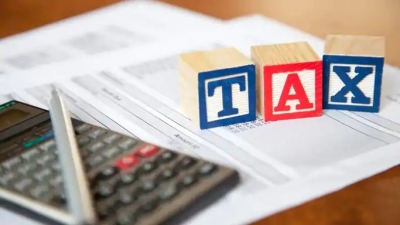New Delhi, Dec 17 (IANS) The Central Board of Direct Taxes (CBDT) has launched an electronic campaign to assist taxpayers in resolving mismatches between the income and transactions reported in the Annual Information Statement (AIS) and those disclosed in Income Tax Returns (ITRs) for the financial years 2023-24 and 2021-22, according to an official statement issued on Tuesday.
The campaign also targets individuals who have taxable income or significant high-value transactions reported in their AIS but have not filed ITRs for the respective years, the statement said.
The initiative is part of the implementation of the e-Verification Scheme, 2021.
As part of this campaign, informational messages have been sent via SMS and email to taxpayers and non-filers where mismatches have been identified between transactions reported in AIS and the ITRs filed.
The purpose of these messages is to remind and guide individuals who may not have fully disclosed their income in their ITRs to take this opportunity to file revised or belated ITRs for FY 2023-24, according to the CBDT statement.
The last date to file these revised or belated ITRs is December 31, 2024.
For cases pertaining to FY 2021-22, taxpayers can file updated ITRs by the limitation date of March 31, 2025. Taxpayers can also provide their feedback, including disagreeing with the information reported in the AIS, through the AIS portal accessible via the e-filing website (https://www.incometax.gov.in/iec/foportal/).
This initiative reflects the Income Tax Department’s commitment to leveraging technology to simplify compliance and ensure transparency. By utilising third-party data, the department aims to create a more efficient, taxpayer-friendly system that aligns with the vision of Viksit Bharat, the statement said. The CBDT encourages all eligible taxpayers to take advantage of this opportunity to fulfil their tax responsibilities and contribute to the nation’s economic development. This effort not only supports the government’s vision for a developed India but also promotes a culture of transparency, accountability, and voluntary compliance, it added.
–IANS
sps/vd

































